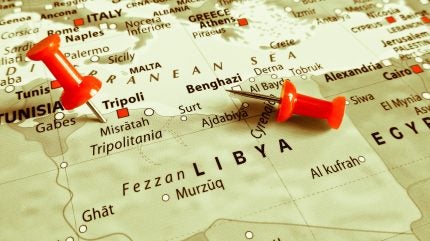
Oil organization OPEC+ is likely to implement a planned rise in oil output in October as a way to balance cuts by some members and the huge drop in Libya’s oil output, as the country faces political turmoil.
Eight members of OPEC+, a group of more than 20 oil-exporting nations, are scheduled to boost their oil output by 180,000bpd.

Discover B2B Marketing That Performs
Combine business intelligence and editorial excellence to reach engaged professionals across 36 leading media platforms.
This is part of a previously agreed move to start the gradual reversal of oil production cuts of 2.2 million barrels a day (mbbl/d).
Several news outlets, citing experts and analysts, said the production increase will go ahead as planned to partially compensate for Libya’s huge production cuts, as a dispute over the replacement of the central bank governor in the country rages.
Oil output has halved in Libya in recent weeks, with the National Oil Corporation (NOC) announcing at the end of August that the North African nation’s output dropped to around 590,000bpd from 1.18mbbl/d at the end of July.
OPEC had said previously that it could pause or even abandon production hikes if market conditions were not appropriate.

US Tariffs are shifting - will you react or anticipate?
Don’t let policy changes catch you off guard. Stay proactive with real-time data and expert analysis.
By GlobalDataA slowdown in oil demand in several key regions, particularly China, has pulled down oil prices over recent months, although values have remained relatively stable over the past year.
The International Energy Association’s 2024 global oil demand forecast remains unchanged but the watchdog lowered its 2025 estimates due to the impact of a weakened Chinese economy on consumption.
According to the report, Chinese oil demand declined for the third consecutive month in June, primarily due to decreased industrial inputs, including those for the petrochemical sector.
In early July, Kazakhstan’s Energy Ministry announced that it will, by the end of September 2025, make allowances for surpassing its OPEC+ oil production limit in the first half of this year, demonstrating a comprehensive plan for gradual compensation aimed at placating other members of the group.
Kazakhstan, a key player among the OPEC+ nations, has agreed to implement additional voluntary production decreases, although specific output amounts were not disclosed on Monday.



